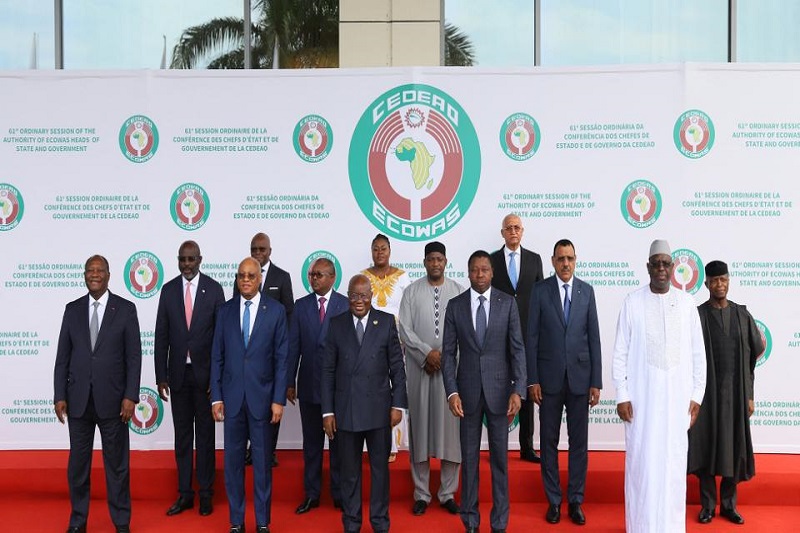Last updated on July 6th, 2022 at 06:54 am
The leaders of the Economic Community of West African States (ECOWAS) have lifted economic and financial sanctions imposed on Mali and Burkina Faso. They have accepted a March 2024 return to civilian rule in Mali and agreed to allow Burkina Faso two years for its transition back to democracy.
Mali’s military regime recently proposed a 24-month transition to democracy. ECOWAS imposed stiff sanctions on Mali in January after the military government said it would not organise democratic elections in the country. However, Mali has now published a new electoral law.
Heads of the ECOWAS met in Ghana’s capital Accra on Sunday with the aim to restore civilian rule in Mali, Guinea and Burkina Faso. After the meeting, ECOWAS Commission President Jean-Claude Kassi Brou announced the decision.
Related Posts
ECOWAS will monitor the current situation in Mali
However, ECOWAS will continue to monitor the situation in Mali. Reportedly, ECOWAS also demands no military junta member run as a candidate in the upcoming presidential election in Mali.
The ECOWAS mediator in Mali, former Nigerian President Goodluck Jonathan, recently visited the country. Mali’s top diplomat Abdoulaye Diop also said that “the recent political developments in Mali encouraged members to lift the economic sanctions.”
Burkina Faso and Guinea transitions
Mali underwent coups in August 2020 and May 2021. In August 2020, army officers led by Colonel Assimi Goita removed President Ibrahim Boubacar Keita amid street protests.
Mali delayed the elections after a 2020 military coup. The Mali authorities proposed a five-year extension of the transition period for the formation of the new government.
Guinea underwent coups in September 2021 and Burkina Faso this January. ECOWAS also accepted a pledge from the military that seized power in Burkina Faso to restore constitutional order in 24 months. Burkina Faso also proposed presidential elections in February 2025.

